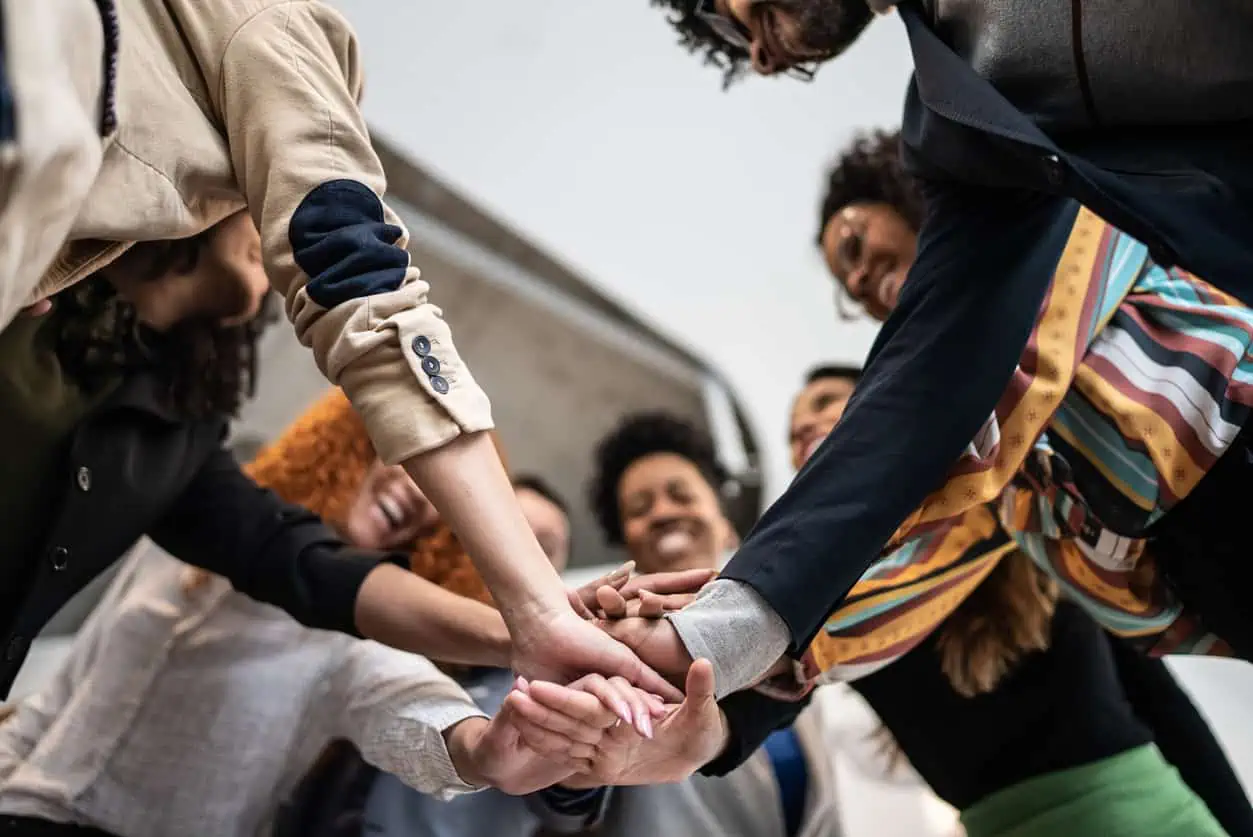In early August, the 2022-2023 Skilled Immigrant Integration Program (SIIP) cohort held its final quarterly call, culminating the successful launch of a new iteration of the program’s structure. The 16 participating communities[1] collaborated in sub-cohorts that centered on four thematic focus areas: Advancing and Retaining Internationally Skilled Employees, Creating Career Navigation Tools and Resources, Developing Contextualized Digital Skills Opportunities, and Workforce Board Partnerships. This new SIIP structure created intimate communities of practice, uniting cities, regions, and states working on similar initiatives to support internationally trained and educated immigrants and refugees.
In Colorado: Laying the Groundwork for New Initiatives
Anthony Cherwinski of Colorado’s Office of New Americans said, “Participation in the SIIP has advanced the work of my overall goal to support the integration of new Americans into my state’s economy.” As the lead for his office’s participation in the Advancing and Retaining Internationally Skilled Employees sub-cohort, he added, “I always remind employers, state officials, and community-based organizations that while new programs are needed, much of this work involves the dismantling of old systems built without inclusivity in mind. Through SIIP, I was [also] able to collaborate with colleagues in my state to gather essential data which guided next steps in training development and programs for new Americans, employers, state programs, and community-based organizations.”
Working alongside colleagues in Colorado’s state government, the City of Denver’s Workforce Development Board and New Americans Integration Network also focused on gathering and disseminating data about immigrant and refugee communities to their multi-sector stakeholder network, as well as within the city. As part of the Workforce Board Partnerships sub-cohort, Denver Workforce Services distributed a survey to identify baseline understanding of the immigrant and refugee population among internal staff, contracted partners, and members of the Denver Workforce Development Board. The results informed a professional development training given to nearly 200 Workforce Development Board members in the Colorado area, on the needs and potential impact of the region’s internationally trained immigrants and refugees. A co-lead for her community, Logann Grasteit, Workforce Development Board Liaison and Senior Management Analyst for the City of Denver, said, “SIIP was a compass in helping us drive an initiative forward with purpose, intention, and clarity. We could not have had such a well-rounded and collaborative project without the support and connections made through SIIP.”

Members of the SIIP 2022-2023 cohort at their final Quarterly Call
In Washington: Developing Tools to Support Local Efforts
As part of the Creating Career Navigation Tools and Resources sub-cohort, Jewish Family Service (JFS) of Seattle developed a robust multi-sector network to further workforce inclusion for the city’s immigrants and refugees. Partnering with organizations such as the Puget Sound Welcome Back Center at Highline College, Washington Academy for International Medical Graduates (WAIMG), TRAC Associates, Project Feast, and Skillspire, JFS led the creation of career development materials specific to Washington State. These materials focused on in-demand professions in the Seattle area, including information technology and coding, teaching, and the culinary arts.
“[JFS Seattle] staff streamlined their template and feedback process to capture just the right amount of information to localize their guides. JFS partner agencies, mentoring volunteers, and SIIP cohort members all provided guidance for content resources, which will connect to the WES Global Talent Bridge Career Pathways e-guides and online tool for more information. The structure of SIIP allowed Seattle to advance from idea to draft product and gave them the time to envision a better system for information sharing among agency partners serving immigrants and refugees, as well as the opportunity to implement the first stage of that process.”
– Hillary Gardner, Creating Career Navigation Tools and Resources technical assistance provider
In Texas: Expanding Digital Inclusion
The City of Dallas participated in the Developing Contextualized Digital Skills Opportunities sub-cohort, during which time the city applied for and received $700,000 from the Federal Communications Commission’s Affordable Connectivity Program Outreach Grant Program with the aim of expanding digital inclusion to the city’s immigrant and refugee communities. Discussing the importance of Dallas receiving this funding, Estefania Ramirez, Digital Equity Coordinator for the City of Dallas, said, “The City of Dallas is thrilled to receive funding through the Federal Communications Commission as the lead applicant in collaboration with Dallas County, Dallas Independent School District, and Dallas Housing Authority to conduct widespread engagement and outreach campaigns to reach millions of residents served by all our agencies…,” including the city’s immigrant and refugee populations. “The funding will also allow partners to support the informal network of information disseminators at non-profits and other community-based organizations working to reach unconnected communities.”
Altogether, the 16 communities engaged in SIIP’s four 2022-2023 sub-cohorts used a variety of targeted approaches to promote immigrant and refugee economic inclusion in their areas. WES Global Talent Bridge and its national partners provided customized technical assistance.[2] In addition to these national experts, the 2022-2023 SIIP communities were able to call upon the SIIP alumni network for guidance on tools, strategies, and proven models to create a more equitable workforce.
A Strong Network for Future Collaboration
Although the 2022-2023 program year is ending, all communities who participated in SIIP this year will remain a part of the SIIP network which spans 40+ communities across the United States. Ongoing membership in the network will grant them continued access to customized trainings, networking opportunities, a resource sharing platform, and an invitation to apply for the SIIP Demonstration Opportunity.
[1] Participants of the SIIP 2022 – 2023 cohort: Anchorage, Alaska; Brattleboro, Vermont; Chicago, Illinois; Dallas, Texas; Denver, Colorado; Eugene, Oregon; Lincoln, Nebraska; Louisville, Kentucky; New York, New York; Portland, Oregon; Seattle, Washington; South Bend, Indiana; Tulsa, Oklahoma; and the states of Colorado, Utah, and Virginia.
[2] SIIP 2022 – 2023 national partners: Anson Green of Tyson Foods Inc. (technical assistance provider for the Advancing and Retaining Internationally Skilled Employees sub-cohort), Hillary Gardner (technical assistance provider for the Creating Career Navigation Tools and Resources sub-cohort), Amanda Bergson-Shilcock of the National Skills Coalition (technical assistance provider for the Developing Contextualized Digital Skills Opportunities sub-cohort), and Brooke Valle (technical assistance provider for the Workforce Board Partnerships sub-cohort).



